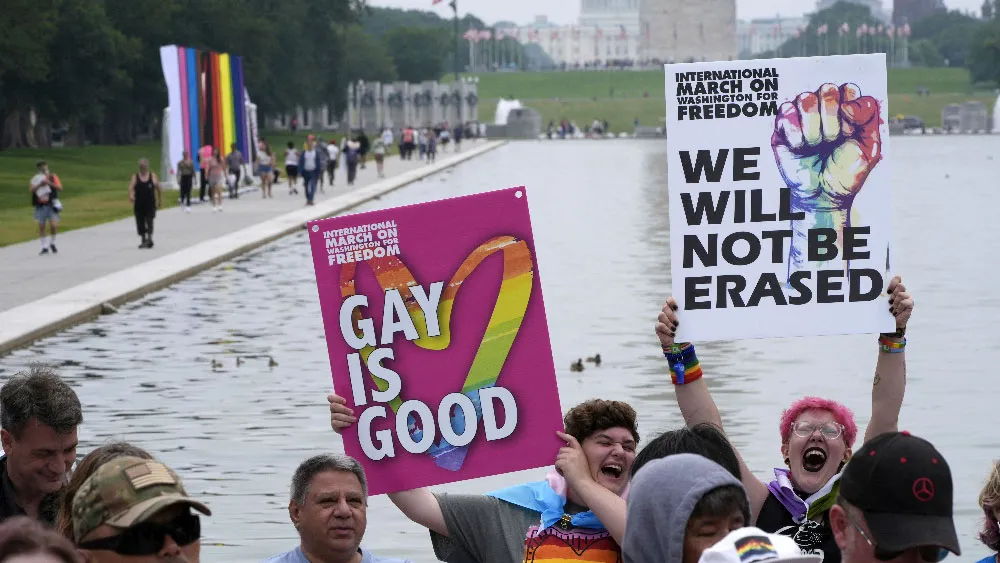September 14, 2015
Immigration Equality Celebrates Protection of Mexican Transwoman
READ TIME: 3 MIN.
On September 3, a federal appeals court ordered that protection under the Convention Against Torture ("CAT") be extended to Carey Avendano-Hernandez, a transgender woman who fled life-long persecution and torture in Mexico due to her gender identity.
In Edin Carey Avendano-Hernandez v. Loretta E. Lynch, Judge Jacqueline Nguyen lambasted U.S. immigration officials for their transphobic treatment of Avandano-Hernandez.
Writing for the three-judge panel, Nguyen notably identifies the rape and sexual assault of transgender individuals as a form of torture. Nguyen was the first Vietnamese-American woman ever appointed to the Los Angeles County Superior Court and the first Vietnamese-American federal judge appointed by President Obama, in 2009.�
�
In its decision, the Court criticized the lower courts as "ironically exhibiting some of the same misconceptions about the transgender community that Ms. Avendano-Hernandez faced in her home country."
The Advocate reports that Avendano-Hernandez came to the United States as an undocumented worker in 2000, after claiming to have been raped and assaulted by her relatives.�She began hormone therapy and presenting as the woman she knows herself to be in 2005.
A year later, after driving drunk on two occasions and injuring two individuals in a crash, she was given a felony conviction for drunk driving, and served one year in jail. In 2007 she was deported to Mexico.
After suffering more mistreatment in Mexico, Avendano-Hernandez returned to the U.S. and appealed for asylum under the protections afforded disenfranchised refugees in the United Nations Convention Against Torture.
The three-judge panel's ruling in the case calls out the transphobia of the immigration judge who initially considered Avendano-Hernandez's plea for asylum, maintaining that the judge "failed to recognize the difference between gender identity and sexual orientation, refusing to allow the use of female pronouns because she considered Avendano-Hernandez to be 'still male,' even though Avendano-Hernandez dresses as a woman, takes female hormones, and has identified as woman for over a decade."
In short, the Court overturned the lower courts' decisions because they wrongly referred to Avendano-Hernandez as a gay man. The decision soundly rejects the conflation of sexual orientation and gender identity, and reminds courts nationwide that transgender women are women. Avendano-Hernandez's victory also provides formal legal recognition that global advances on gay and lesbian rights are not always inclusive of transgender people.
Immigration Equality is proud to have played a role in this victory, and is relieved that Avendano-Hernandez can now live safely in the U.S. Around the world, transgender people continue to flee countries where their gender identity places them at great risk. When they arrive in the United States, many transgender women are detained by Immigration and Customs Enforcement and placed into all-male facilities. This exposes them to harassment, abuse, and sexual assault.
"This decision requires the federal government to recognize and respect the gender identity of women like Ms. Avendano-Hernandez," said Aaron Morris, Legal Director of Immigration Equality. "This sentiment should be extended to all areas of immigration law, and especially to immigration detention facilities."
��
Since 1994, Immigration Equality has been representing LGBT and HIV-positive asylum seekers, detainees, and binational couples, who are fighting for safety, fair treatment, and freedom. Immigration Equality represents people from around the world fleeing violence, abuse and persecution because of their sexual orientation, gender identity, and HIV status. Our team represents more than 500 individuals in 25 states.


